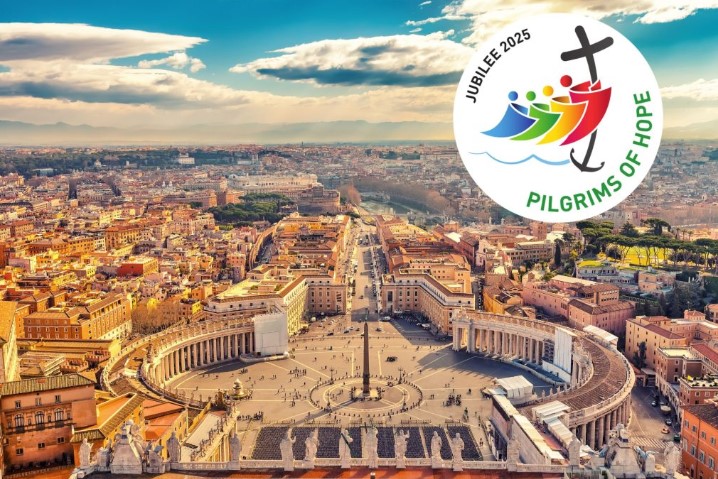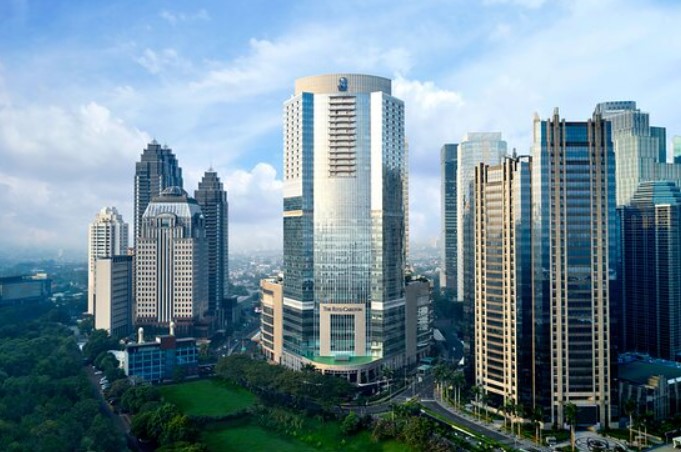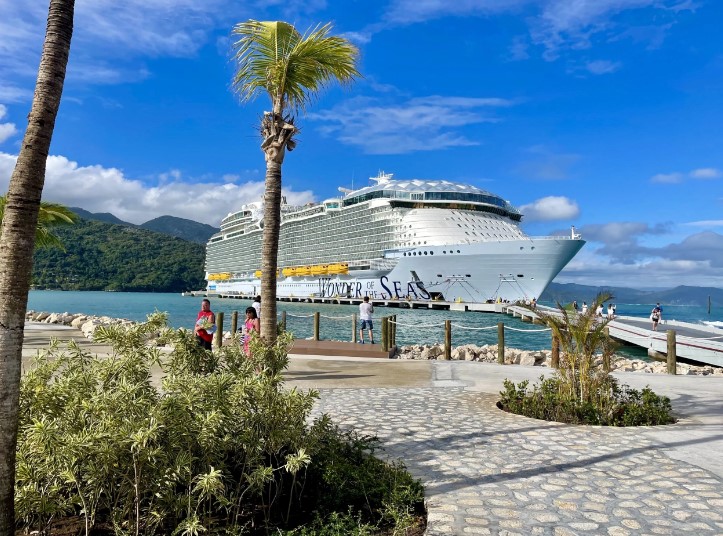MR PATEL: Hey, good afternoon, everybody, and thank you so much for joining us today for this press preview call on the Secretary’s travel to Ireland, where of course he’ll be accompanying the President, but then on to his own programming in Vietnam and then Japan for the G7 Foreign Ministers Ministerial.
With us today, we have Assistant Secretary for the East Asia Pacific Ambassador Dan Kritenbrink. This call is on the record but will be embargoed until the call’s conclusion. And with that, we of course will have time for Q&A towards the end, but the ambassador wanted to offer some thoughts before we dive right in. So Ambassador Kritenbrink, take it away.
ASSISTANT SECRETARY KRITENBRINK: Hey, Vedant, thank you very much for that, and a special thanks to all of our friends in the media for joining us. It’s always a pleasure to be with you, and this afternoon I’m particularly delighted to discuss the Secretary’s upcoming travel to Asia. As we announced this morning, Secretary Blinken will travel to Vietnam and Japan April 14 to 18. Both countries hold a very special place in my heart, but I’ll focus my comments today on Vietnam, and then I think Vedant may add a few additional comments on the G7 trip to Japan.
But in Hanoi, Secretary Blinken will meet with senior officials in Vietnam to build on the momentum of President Biden’s call with General Secretary Nguyen Phu Trong late last month. The Secretary will also break ground on our new embassy compound in Hanoi, something that is also near and dear to me as the former U.S. ambassador to Vietnam. It is amazing to think that less than 30 years after normalizing relations and moving into our first embassy in Hanoi in 1995, we will now be putting shovels into the ground to begin building a stunning new symbol of the U.S. commitment to our enduring partnership and friendship with Vietnam.
We’re particularly grateful to our Vietnamese partners for signing just a few hours ago the conditions of construction agreement that makes this long-awaited project – this long-awaited project a reality. This year, of course, we celebrate the 10th anniversary of our comprehensive partnership with Vietnam, a partnership that is anchored by strong people‑to‑people ties and grounded in our shared commitment to economic prosperity and our belief in a rules-based international order.
Again, it’s remarkable just how far we’ve come in our relationship with Vietnam. We built the foundation of this partnership by addressing the legacies of war. And while those efforts continue, of course, to be an important part of our friendship, we today enjoy a future oriented partnership that does so much more, including promoting regional security and prosperity as we work together to build and sustain a stronger, more resilient, and more dynamic future for Americans and Vietnamese.
We see Vietnam as a trusted partner in the Mekong as well, a leader within ASEAN, and important member of the Indo-Pacific Economic Framework. In just a few short years, we’ve also become one of Vietnam’s key trading partners. In fact, the U.S. is now Vietnam’s number-one export market, and Vietnam is our eighth largest trading partner in goods. Many major U.S. multinational companies are expanding their footprints in Vietnam, and Vietnamese companies are building their presence in the United States as well.
Vietnam has become a key link in global supply chain. Vietnam is the leader in the region, not only encouraging new economic initiatives but also in confronting the climate crisis. And in their recent phone call, President Biden stressed to General Secretary Trong our desire to cooperate with Vietnam on its ambitious climate goals. Partnering on solutions to address climate change and its effects will no doubt be on the agenda for Secretary Blinken’s engagements, as will a broad range of other issues important to our comprehensive partnership.
So why don’t I stop here, and Vedant, I’ll kick it back over to you, and I look forward to addressing everyone’s questions in just a little while. Vedant.
MR PATEL: Thanks so much, Ambassador. And so the Secretary is going to continue on. On Sunday, April 16th, the Secretary will travel to Karuizawa to participate in a G7 Foreign Ministers Meeting at the invitation of Japan, which, as we all know, holds the rotating presidency of the G7 this year. The G7 Foreign Ministers Meetings are important opportunities to demonstrate leadership on shared goals and values, and to find new ways to collaborate on many international challenges.
The G7 remains committed to pursuing an (inaudible) inclusive agenda under Japan’s leadership, and Secretary Blinken is once again looking forward to the opportunity to engage with counterparts on a range of important issues. The Secretary will discuss with his counterparts charting a path forward on a number of these issues, including Russia’s continued war against Ukraine, nuclear disarmament and nonproliferation, food and energy security, and advancing an affirmative vision for a free and open Indo-Pacific.
And with that, we are happy to take some questions, Operator, if you want to repeat instructions on how folks may ask a question.
OPERATOR: Thank you, Mr. Patel. If you do wish to ask a question today, please press 1 followed by the 0. You’ll hear an acknowledgement you’ve been placed in queue. To take yourself out of the queue, please press 1 followed by 0 again. And one moment, please, for our first question.
MR PATEL: Let’s first go to Will Mauldin with The Wall Street Journal.
QUESTION: Thank you so much for doing this, and I wanted to ask Assistant Secretary Kritenbrink a little bit about how – if he has any evidence or recent trends or information he’d point to to show the deepening ties between Vietnam and the U.S. Obviously, Vietnam’s economy is fairly closely linked to China’s. The U.S. and Vietnam aren’t in the TPP together anymore. Vietnam is not in the Summit of Democracies that the administration has placed a lot of emphasis on. You mentioned the new embassy building and the economic ties, but I wonder if there’s anything else that would show increasing ties.
And then also on the economic side, you mentioned the trade relationship. Do you think of Vietnam as the replacement or partial replacement for the U.S. dependence on China for manufactured goods? Thank you.
ASSISTANT SECRETARY KRITENBRINK: Well, Will, thanks so much for your comment. Great to hear from you.
Look, I think that Vietnam is one of America’s most important partners in the region. And I think it’s stunning just how broad-based our cooperation is. Certainly on the trade side, I talked about the rapidly expanding trade volumes between us; trade last year is now over $100 billion annually, Vietnam’s our eighth largest trade partner. And if you look particularly in terms of agricultural exports, Vietnam is a top-10 agricultural export market for the United States globally. And also you see many of America’s largest and most important companies have a presence in Vietnam. Vietnam is now central to supply chain globally.
You asked the question – you said, could Vietnam play a role in replacing a dependence on China? I wouldn’t frame the question that way, Will. I would say that I think many of us have learned over the last few years that it’s not advantageous for any one country to be overly dependent on a particular partner or particular supply chain. So I think you do see companies around the world are diversifying their supply chains, and certainly Vietnam has benefited from that trend, and I think for good reason, because Vietnam has many, I think, advantages as a trading partner. But I think diversification is the word that I would focus on. It’s not just Vietnam, but I think many other partners.
But looking more broadly at the relationship, we have a very robust security relationship. I think you’ve seen pretty significant growth in our mil-to-mil ties in terms of naval ship visits, the large amount of security assistance that is provided to both the Vietnamese military and the coast guard and law enforcement entities to build Vietnam’s capacity to better understand what is happening in its domains and to better defend its interests, which we believe further contributes to stability across the region. We have broadening people-to-people ties in Vietnam, serves as the largest source country in Southeast Asia for students studying in the United States.
We have an incredibly deep and robust health relationship as well. For decades now our CDC and USAID have carried out a number of programs on the ground to build Vietnam’s health capacity. And I know during the pandemic the United States was proud to provide, I believe, more than 40 million doses of COVID vaccine along with millions of dollars in assistance, more than $33 million in assistance to build Vietnam’s health care capacity. And of course, we were very grateful early on in the pandemic when Vietnam was one of the first countries in the world to assist the United States during our time of need by providing millions of articles of personal protective equipment, everything from masks and gloves to gowns and the like.
So I could really go on and on, Will, but this is this is a broad-based, future-oriented partnership that I think benefits both countries and peoples dramatically. Of course, it’s built on a foundation first of addressing legacy of war and other humanitarian issues. But increasingly, it’s really striking to see the momentum that we have across the board in a broad range of areas. And I’m confident that Secretary Blinken will help advance our partnership even further during his important upcoming visit. Thank you.
MR PATEL: Let’s next go to the line of Jenny Hansler with CNN.
QUESTION: Hello?
ASSISTANT SECRETARY KRITENBRINK: Hi, Jenny.
QUESTION: Hi. Thanks so much for doing this. I had a question on the G7. I know there’s a push from the EU to get consensus on a special tribunal for the crime of aggression among the G7 leaders. Do you expect this to come up in conversation at the foreign ministers meeting? And do you think there will be consensus on that front? Thank you.
ASSISTANT SECRETARY KRITENBRINK: Vedant, can I turn that to you?
MR PATEL: Yes – yes, sir. Hey, Jenny, so I think we’re not going to get ahead of the process or the schedule when it comes to the Secretary’s G7 programming. We’ll have more to share as we get closer to Japan. But broadly, as you know, the G7 has been an important partner in holding Russia accountable for its aggression in Ukraine, including the atrocities that we have seen the Russian Federation commit. And I have no doubt that the G7 will continue to play an important role in that, including at the upcoming foreign ministers meeting. But I’m just not going to get ahead of the trip beyond that.
Next question, let’s go to Leon Bruneau from AFP.
QUESTION: Can you hear me?
MR PATEL: Yep, go ahead.
QUESTION: Yeah, sorry. Thanks for having this. Two very quick questions. One on Vietnam: Did I understand correctly that you said the new embassy has been approved and that you will start the construction of that new embassy? Just – I just wanted to clarify for my own purposes.
ASSISTANT SECRETARY KRITENBRINK: Yeah, Leon. Just to make clear, what’s going to happen during the Secretary’s trip is that he will participate in a groundbreaking ceremony, which will be – which will mark the formal launch of construction of our new embassy in Hanoi. And this is an effort that has been many years in the making. I think it will serve as a really powerful and stunning symbol of this new partnership and friendship that we’ve built with Vietnam over the past few decades, and I know we’re very excited to have this – to mark this very special occasion through this groundbreaking during the Secretary’s trip.
And I think at the time of the groundbreaking on the ground in Hanoi, you’ll – we’ll provide much more information on the new embassy and our plans there for it.
QUESTION: Okay, excellent. And – thank you. And a quick question for Vedant, since it’s on the G7. Are we – are you expecting, are we expecting any deliverables, any outstanding issue that will highlight this G7? Or is it more in the continuation of the last G7 and ahead of the summit, of the G7 summit? So basically, are there any deliverables or announcements you’re expecting?
MR PATEL: Thanks, Leon. I’m just not going to get ahead of the summit and the ministerial, and I’m sure that we will have more to share and offer as we get closer.
Let’s next go to Matt Lee with The Associated Press.
QUESTION: (Inaudible) Dan. Vedant, can you hear me?
MR PATEL: Yeah, go ahead.
ASSISTANT SECRETARY KRITENBRINK: Go ahead, Matt.
QUESTION: Okay. All right. Do you have any issues with the Vietnamese, or is everything just hunky-dory?
ASSISTANT SECRETARY KRITENBRINK: Matt, thank you. Nice to hear from you. Look, Matt, I think there’ll be – it will come as no surprise to you that even amongst our closest and most important partners like Vietnam, we do of course have certain areas of concern and then other issues that we need to work through. And the primary reason for the Secretary’s travel, obviously, is to take our partnership to the next level and further expand the really practical areas on which we’re engaged; and of course he’ll participate in the groundbreaking I mentioned.
But we’ll have an opportunity to discuss some areas of difference as well. I think I would point out, in particular, I think there are a number of issues related to human rights that I’m confident that the Secretary will raise. I think a fair assessment of the human rights situation in Vietnam would be that the picture is mixed and that there have been a number of important advancements, and I think there are a number of good news stories. But I think there are also some significant concerns when it comes to freedom of expression, particularly online, and some issues related to freedom of religion as well.
So I’m confident that the Secretary will have an opportunity to talk about both the areas where we’ve seen positive steps on issues such as respect for the rights of women and members of minority groups and the LGBTQI+ individuals and persons with disabilities. But again, he’ll have an opportunity to address some of the concerns I’ve outlined as well.
And then I would also say that even though I think that our partnership with Vietnam represents tremendous opportunity in terms of economic and trade as well, again it’ll come as no surprise that there are some concerns that we’ll work through as well, including regarding market access and the fair treatment of American companies as well, even though there’s a lot of good news to celebrate there as well.
And then I think – I wouldn’t say it’s an area of difference; I would say it’s more of an area of cooperation. But as I noted in my opening remarks, I think the Secretary will be prepared to have a good exchange on our shared interests related to climate change, and we do want to support Vietnam to be able to meet its very ambitious commitments.
Thanks, Matt.
MR PATEL: Let’s go to Nike Ching with Voice of America.
QUESTION: Hello. Thank you, Vedant and Ambassador. Can you hear me?
MR PATEL: Yep.
ASSISTANT SECRETARY KRITENBRINK: Loud and clear.
QUESTION: Okay, thank – thank you so much for the phone briefing. Do you have anything on the discussion of an official visit by Vietnam’s Communist Party Chief Trong to the White House in July? Has there been a formal proposal?
And separately, follow-up on human rights and press freedom, could you talk about the high-profile cases of prisoners of conscience, including the recipient of 2022 International Women of Courage Award Trang, who was sentenced to 9 years in 2021? And another case is a green energy activist. She was Vietnam’s first recipient of the prestigious Goldman Environmental Prize who was arrested last year. Is there any indication that there will be (inaudible) of certain cases? Thank you so much.
ASSISTANT SECRETARY KRITENBRINK: Well, Nike, thanks so much for your questions. I mean, I think I would start by saying that certainly the history of U.S.-Vietnam relations would show just how important senior-level interaction has been in growing our partnership, and I’m confident that Secretary Blinken’s visit will be the next important step in our relationship. I don’t have anything to announce today on any other senior-level interactions, and for any specific questions you might have regarding President Biden I’d refer you to the White House.
Now, on the broader issue of human rights, as I mentioned to Matt a moment ago, this will certainly be an area of discussion when the Secretary visits. As I noted, there have been some positive developments in Vietnam that I’ve already outlined, and as we’ve already stated publicly on previous occasions, we do congratulate Vietnam on its election to the UN Human Rights Council as well. But as a responsible member of the international community and now a member of the Human Rights Council, we do expect Vietnam to live up to its international human rights obligations and commitments.
Now, I mentioned earlier some of the concerns that we have, particularly when it comes to freedom of expression, especially online. And look, whether it’s the two specific cases that you mentioned or other high-profile cases, there has been a troubling trend of harassment and arrests and harsh sentences that have targeted Vietnamese citizens, journalists, and activists simply for exercising their right to express their opinions.
So I’m confident that we’ll have an opportunity to discuss those issues when we’re in Vietnam. And again, that has been the case really since we established diplomatic relations in 1995. And as I noted, I’m confident the Secretary will have an opportunity to discuss candidly those areas where there have been positive developments when it comes to human rights and civil society, and he’ll also have an opportunity to address the concerns that I have here as well.
And I can say as well from my own experience on the ground in Vietnam, we’ve always stressed that it’s in America’s interest to support the development of a strong, prosperous, and independent Vietnam, but we of course believe that Vietnam and all countries will be stronger and more prosperous and more secure when Vietnam also ensures the fundamental rights of its citizens.
MR PATEL: Great. Let’s next go to the line of Ed Wong from The New York Times.
QUESTION: Good afternoon, everyone. I was wondering two things about the Vietnam trip. One is: Is the U.S. making efforts to have Vietnam turn away from buying weapons from Russia and buying – and instead buying those arms from other countries?
And the second thing is: How are efforts on trying to upgrade diplomatic ties to a strategic partnership at the moment? And are warming ties between Vietnam and China an impediment to that?
Thanks.
ASSISTANT SECRETARY KRITENBRINK: Ed, thanks so much for your questions on this (inaudible). Let me see if I can hit all three of them.
Yes, look, what I would say, Ed, is look, absolutely we’ve had (inaudible) conversation and dialogue with our Vietnamese friends and other partners around the world. We (inaudible) obviously would be in Vietnam’s interests and also would conform to U.S. law, including CAATSA, to see partners like Vietnam diversify their defense purchases away from Russia.
So I think we’ve certainly made our views well known on that subject. I’ll leave to Vietnam and my friends in Hanoi to comment on their own views and their own position, but certainly we’ve made very clear what our position is on that matter.
Look, I don’t have anything to really say or announce today, Ed, on the exact status or level of our partnership. What I would say is this, is that whatever label or bumper sticker you want to put on the relationship, there’s no doubt that this partnership we’ve built with Vietnam is robust, it’s incredibly diverse and broad-ranging. And again, Vietnam is one of our most important partners in the region, and I’m very optimistic about our future. I’m confident that the Secretary’s trip will advance further our partnership and strengthen and deepen it, and I know that the President’s recent phone call with General Secretary Nguyen Phu Trong did the same.
On – you asked a question about Vietnam’s ties with China. I guess, Ed, what I would say is that we’re focused on our partnership with Vietnam. The partnership and friendship that we’ve built is intrinsically valuable to the United States in and of itself, and for the many reasons I’ve outlined here today, from trade to security to health, climate, and people-to-people ties. We’ve built this really robust partnership, and again, Vietnam is one of our most important relationships in the region.
And our focus is going to be on that relationship and on that partnership, and how we can build it out further and how we can further demonstrate the credibility of our commitment both to Vietnam and to the larger region.
And maybe the final comment that I’ll make is that of course in the context of building our partnership, we’ll always have a robust exchange on our shared interests and values and the kind of region that we both want to live in. And I think that’s the place where maybe our views are most aligned, and that would be – I think that both Washington and Hanoi are almost completely aligned on the kind of Indo-Pacific that we want to see and in which we want to reside – a region that’s free and open, where all countries large and small play by the same rules, where large countries don’t bully small ones, where countries trade freely but also fairly, and where disputes are resolved peacefully and in accordance with international law. And I know for a fact that leaders in both Hanoi and Washington see eye-to-eye on those matters, and that maybe more than anything forms the bedrock of this new partnership that we’ve built.
MR PATEL: All right. We’ve got time for one last question. We’ll go to the line of Tetsuo Shintomi with Kyodo News.
QUESTION: Hi, can you hear me?
ASSISTANT SECRETARY KRITENBRINK: Yes, I can: loud and clear.
QUESTION: Thank you very much for taking my question. I would like to ask on G7 Foreign Ministers meeting in Karuizawa. As you have announced, you may discuss about nuclear disarmament and nonproliferation with your counterparts. So could you elaborate a bit more on that? How do you see its priority among all the agenda, where with the invasion of Ukraine, have has increased risk of using nuclear weapon? And also, would you also raise the issue of New START Treaty which Russia suspended its participation? Thank you very much.
MR PATEL: Thanks so much for that. Oh, sorry, Ambassador. Go ahead.
ASSISTANT SECRETARY KRITENBRINK: Oh, no —
MR PATEL: Go ahead.
ASSISTANT SECRETARY KRITENBRINK: (Inaudible.)
MR PATEL: Great. Thanks so much for your question, Tetsuo. So let me just say a couple things. Again, we will have more to share about the Secretary’s G7 programming as we get closer to our arrival in Japan. But let me just say broadly that as it relates to nuclear disarmament and nonproliferation, our G7 partners, including, of course, Japan, have played an integral role, and I have no doubt that we will have further discussions about that. And of course, as I said earlier, our G7 partners have been united in holding the Russian Federation accountable for their egregious assault on Ukrainian territorial integrity and sovereignty, and I have no doubt it will be a topic of discussion and something that our G7 partners will stay closely aligned and communicate on.
All right, everybody. Thanks so much for joining today’s press briefing.
ASSISTANT SECRETARY KRITENBRINK: Thanks Vedant so much for doing this. Hey, Vedant, would you mind if I made just one —
MR PATEL: Yes, please.
ASSISTANT SECRETARY KRITENBRINK: — closing comment?
MR PATEL: Please, Ambassador, go ahead.
ASSISTANT SECRETARY KRITENBRINK: Hey, thanks so much for arranging this, and I really do want to – I really do want to thank all members of the press for joining us here today. I really wanted to close with just one comment and to try to put the trip into a slightly larger context. I mentioned a moment ago to Ed that it’s the shared vision of the kind of region that we want to live in that I think perhaps forms the bedrock of our current partnership.
But I think one other issue is really fundamental and worth flagging here to close, and that’s respect. And I think you’ll see during the trip, and you’ve certainly seen through our recent actions in the past few years, that this is also a partnership that is founded on mutual respect. I talked about America’s strong interest in supporting the development of a strong, prosperous, and independent Vietnam, but we’ve also stated and committed to one another that we built a comprehensive partnership that’s founded on mutual respect, and that includes our respect for one another’s sovereignty, territorial integrity, independence, and also respect for our respective political systems.
And so I think between the shared vision that we have for the region and our hopes for the future and the strong mutual respect that exists between us, we’re very optimistic about the future of this partnership. And again, I’m confident that Secretary Blinken will make a significant contribution to that. Thank you.
MR PATEL: Thanks so much, again, everybody for joining today. The embargo is now lifted, and I look forward to talking to you all very soon.
ASSISTANT SECRETARY KRITENBRINK: Thanks, everyone.






More Stories
Exploring the “Otaku Island” of Enoshima
Japan eases travel with eVisas
Should you visit Japan or South Korea?